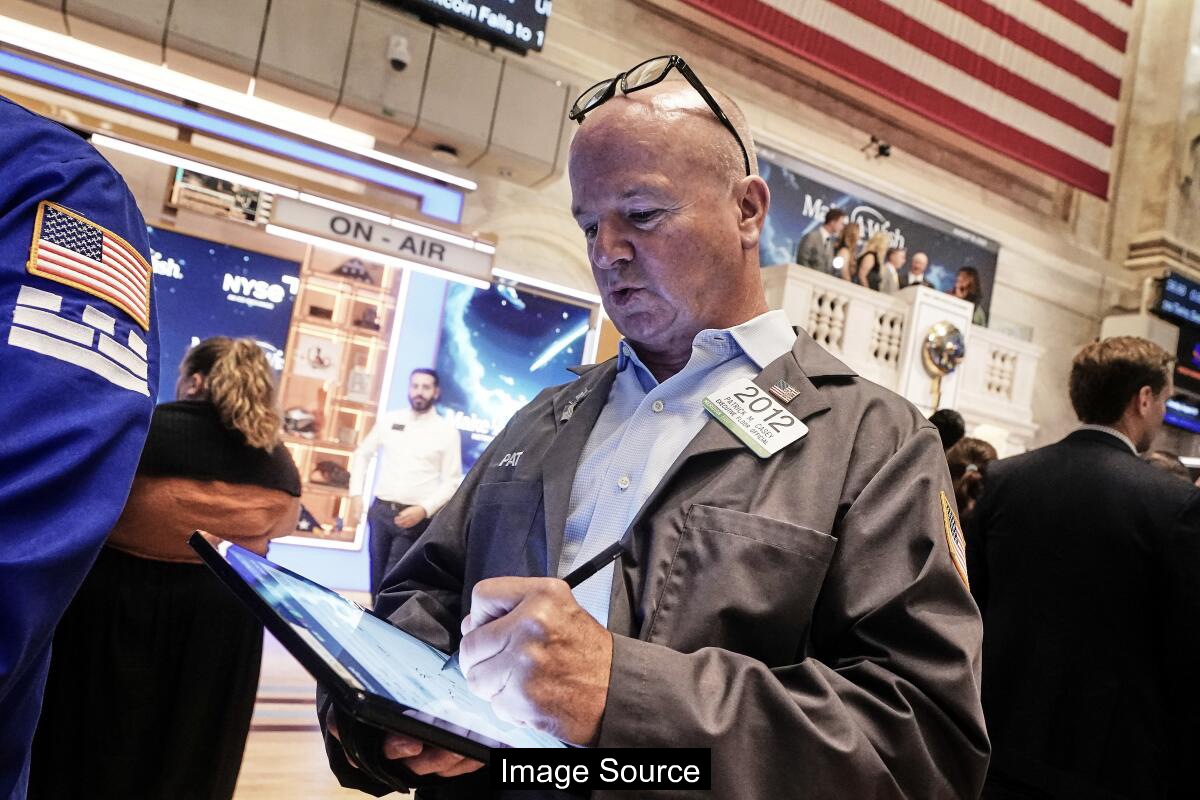U.S. stock markets experienced significant declines on Wednesday as rising Treasury bond yields triggered widespread investor concerns about economic stability. The sell-off was particularly pronounced across technology and growth stocks, with the major indexes recording their sharpest single-day drops in several weeks.

Market Overview: A Day of Decline
Wall Street experienced a significant downturn on Tuesday, with major stock indices retreating from their recent record highs. The Standard & Poor’s 500 dropped 0.7%, marking its worst performance in a month, while the Dow Jones Industrial Average fell 249 points and the Nasdaq composite lost 0.8%. Despite the day’s losses, all three indices remain relatively close to their recent peak valuations.
Big Tech companies were primary drivers of the market decline, with Nvidia, Amazon, and Apple experiencing notable drops. Nvidia, a key player in artificial intelligence technology, fell 2% and was the most substantial negative force pulling the S&P 500 downward. The tech sector’s recent extraordinary performance has raised concerns about potential overvaluation.
The market’s retreat was largely influenced by rising bond market yields, with the 10-year Treasury yield climbing to 4.27%. Higher bond interest rates typically reduce investor enthusiasm for stocks, creating a challenging investment landscape.
Economic and Political Pressures
Global economic uncertainties contributed to market volatility, with rising long-term bond yields reflecting concerns about government debt repayment capabilities. In the United States, additional pressure emerged from political tensions surrounding Federal Reserve independence and potential interest rate policies.
A federal appeals court ruling on Trump-era tariffs added complexity to the economic environment. While the court left existing tariffs in place, the decision highlighted potential disruptions to global trade mechanisms. Economists suggest these tariffs might have significant implications for government borrowing and economic stability.
Manufacturing data further complicated the economic picture, with reports indicating sector contraction beyond economists’ expectations. Multiple companies reported challenges related to tariff uncertainties and weakening product line orders, signaling potential broader economic headwinds.
Quick Market FAQ
Q1. Why are bond yields important for stock market performance?
A1. Bond yields represent the return on government debt. When yields rise, investors may find bonds more attractive compared to stocks, potentially shifting investment strategies and reducing stock market valuations.
Q2. How might Federal Reserve decisions impact market performance?
A2. Federal Reserve interest rate policies directly influence investor sentiment, borrowing costs, and overall economic expectations. Rate cuts can stimulate economic activity, while rate increases might slow economic growth.
Corporate Developments
Several notable corporate announcements impacted market sentiment. Constellation Brands experienced a 6.6% stock decline after warning about reduced high-end beer purchases, particularly among Latino customers. The company subsequently lowered its fiscal year profit forecast.
Kraft Heinz made a significant strategic move by announcing a split into two separate companies. One entity will focus on shelf-stable meals and brands like Heinz and Kraft Mac & Cheese, while the other will manage Oscar Mayer and Lunchables brands. This restructuring reflects ongoing corporate adaptation strategies.
PepsiCo saw a positive market response after Elliott Investment Management proposed strategies to accelerate growth and improve financial performance. The investor’s history of driving corporate transformations suggests potential strategic shifts for the company.
Global Market Context
International markets reflected similar cautious sentiments. European markets experienced substantial declines, with Germany’s DAX losing 2.3%. Asian markets showed mixed performance, with Seoul’s indexes rising 0.9% while Hong Kong saw a 0.5% decrease.
The interconnected nature of global financial markets was evident, with economic indicators and geopolitical developments creating ripple effects across different regions. Investors remained vigilant, monitoring potential shifts in economic policies and market dynamics.
Gold prices reached record levels, traditionally interpreted as a sign of investor uncertainty. This trend underscored the complex economic landscape and investors’ search for stable investment alternatives during periods of market volatility.
Strategic Pointers
The day’s market performance highlighted the intricate relationships between technological innovation, political policies, and investment strategies. Big Tech’s continued influence, coupled with broader economic uncertainties, suggests a nuanced investment environment.
Investors should remain attentive to upcoming economic reports, particularly the anticipated employment data and potential Federal Reserve interest rate decisions. These factors could significantly influence market trajectories in the coming weeks.
Diversification and careful analysis of individual sector performances remain crucial strategies for navigating the current complex market landscape. Understanding the interplay between technological advancement, corporate restructuring, and macroeconomic trends will be key to successful investment approaches.
※ This article summarizes publicly available reporting and is provided for general information only. It is not legal, medical, or investment advice. Please consult a qualified professional for decisions.
Source: latimes.com